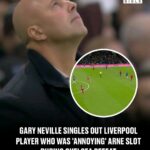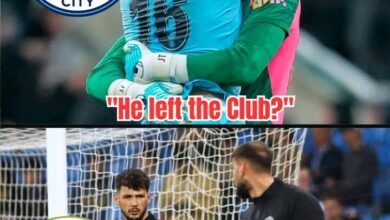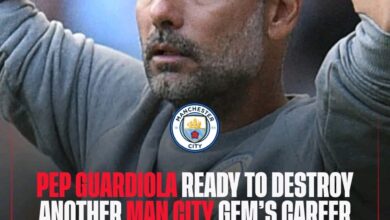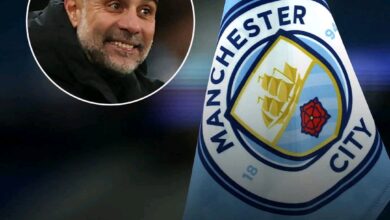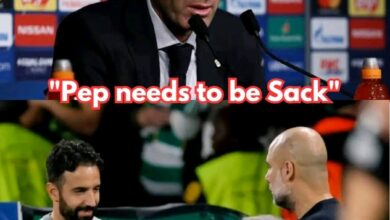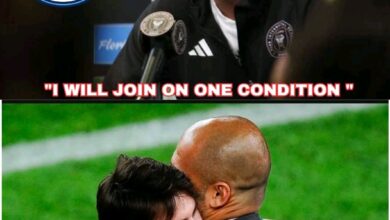The most annoying man in football
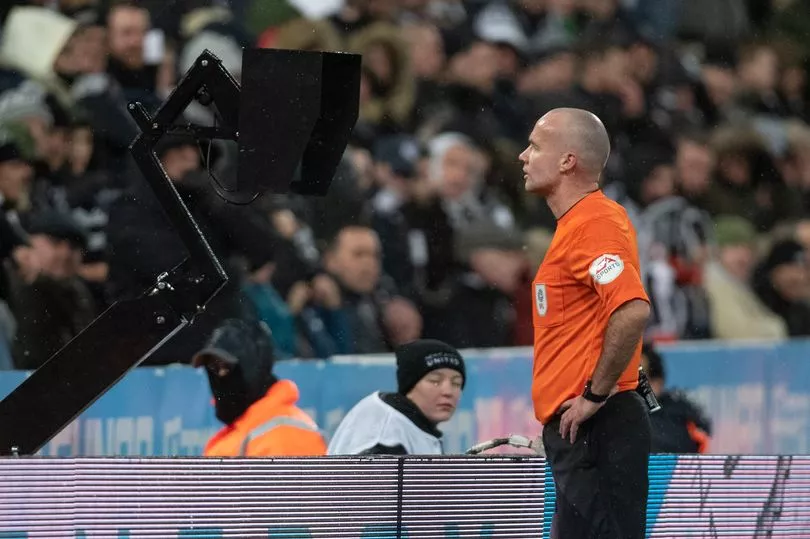
Nicolas Jover, a coach at Arsenal Football Club, has made a significant impact on the team’s performance, particularly in the area of set-piece play. However, despite the positive influence he has had, he has also attracted significant criticism, notably from former Manchester United player Gary Neville. This criticism centers around Jover’s role on the sideline and his presence during matches, a subject which has sparked considerable debate. While some may see Jover’s contributions as vital to Arsenal’s success, others, like Neville, seem to have a more negative view. The criticism raised by Neville, especially his repeated calls for Jover to step back from his duties, raises important questions about the role of coaches, the evolving nature of football tactics, and the way individuals within the sport interact.
To fully understand the controversy surrounding Nicolas Jover, we must first take a look at his role at Arsenal. Jover is a set-piece coach, and his job is to ensure that Arsenal’s team performs well during dead-ball situations, such as corners, free kicks, and throw-ins. Set pieces have always been an important part of football, but in recent years, teams have started to place a much greater emphasis on them. This shift in focus is largely due to the increasing recognition that goals from set pieces can make the difference between winning and losing, particularly in tight matches. A well-executed set-piece can be the key to breaking down an opponent’s defense or securing an important goal late in a game.
Since Jover joined Arsenal, he has been instrumental in revamping the club’s approach to set pieces. His methods have clearly worked, as the team has scored numerous goals from set-piece situations, and many of these goals have been crucial in their strong performance in the league. In fact, at the time of writing, Arsenal has scored 15 goals in all competitions from set pieces, a statistic that highlights just how important Jover’s contributions have been. These goals have been critical in ensuring that Arsenal remains competitive at the top of the Premier League table. In a sport where fine margins can often determine success or failure, Jover’s role cannot be underestimated.
While many people, especially Arsenal fans, have praised Jover for his work, not everyone shares the same opinion. One of his most vocal critics is Gary Neville, a former professional footballer and current pundit. Neville, who spent the majority of his playing career at Manchester United, has consistently criticized Jover and his presence on the sidelines during Arsenal matches. Neville’s comments have been sharp and, at times, even personal, with the pundit going so far as to describe Jover as “the most annoying man in football.” For Neville, Jover’s presence on the sideline seems to be a source of frustration, and he has made it clear that he believes the coach’s importance is overstated.
Neville’s criticism of Jover is not an isolated case, as it has been a consistent theme throughout his commentary on Arsenal’s matches. He has stated that Jover’s actions during games offend him and that the set-piece coach is “overreaching his importance.” These comments raise several interesting points about the relationship between pundits and coaches, the role of modern coaching in football, and how certain individuals react to changes in the game. Neville, who played in a very different era of football, seems to be particularly sensitive to the changes taking place in the sport. His view of the game is often shaped by his experiences as a player during Manchester United’s dominance in the 1990s and 2000s, an era when the team’s success was built on a particular style of play, one that relied heavily on passion, heart, and physicality.
It seems that Neville’s criticism of Jover is partly driven by a reluctance to embrace the modern tactics that are increasingly prevalent in today’s game. For Neville, it may be difficult to accept that a set-piece coach, someone whose job revolves around these dead-ball situations, can be such a key figure in a team’s success. It is clear that Neville views football through a more traditional lens, one that prioritizes flair, aggression, and direct play over tactical nuance and careful planning. This could explain why he finds Jover’s presence on the sidelines so offensive—because it represents a shift in the way football is being played, a shift that Neville may not fully understand or appreciate.
Furthermore, Neville’s criticism seems to be somewhat personal in nature. He has made repeated comments about Jover, focusing his attention on the set-piece coach week after week. It is almost as if Neville feels personally affronted by Jover’s role at Arsenal, which raises questions about why he is so fixated on the coach. If Jover were acting in a disruptive manner or engaging in confrontations with opposing players or officials, Neville’s criticism might be more justified. However, from all accounts, Jover is simply doing his job, quietly working on the sideline to help Arsenal improve in one specific area of the game. There is little evidence to suggest that Jover’s actions during matches are anything but professional and focused on his duties. Yet, despite this, Neville continues to direct his ire at the coach.
The question arises: why is Neville so focused on Jover? It could be that Neville is simply trying to create a narrative for his audience, one in which he can present himself as the voice of reason against modern football’s increasing reliance on tactical specialists. Neville has always been outspoken about what he perceives as a lack of passion and commitment in modern players, often lamenting that today’s footballers are not as driven as those from his playing days. Perhaps, in this context, Jover, with his methodical and calculated approach to set pieces, represents everything that Neville dislikes about the current state of football. Jover’s focus on technique, planning, and precision could be seen as a stark contrast to Neville’s ideal of a more intuitive, aggressive approach to the game.
What is particularly troubling about Neville’s comments is the way in which they dismiss the value of Jover’s contributions. The set-piece coach’s work may not be glamorous or eye-catching, but it is certainly important. In fact, many would argue that it is precisely this kind of work, the kind that takes place behind the scenes and away from the spotlight, that can make the biggest difference in a team’s success. For Arsenal, Jover’s methods have contributed to their attacking threat, giving them another avenue for scoring goals and breaking down opposition defenses. Without Jover’s influence, it’s possible that Arsenal would not be performing as well in the league as they are. Set pieces are a vital part of modern football, and teams that can capitalize on these situations are often the ones that succeed.
The fact that Jover’s contributions are not as visible as those of a star player does not mean that they are any less important. It’s easy to focus on the big-name players, the ones who score the goals or make the flashy assists, but the reality is that every player and every coach has a role to play. Jover’s role may be more specialized, but that doesn’t make it any less valuable. In fact, his work is often the difference between a team being successful or falling short. Teams that are good at set pieces have a crucial advantage in tight matches, and Jover has undoubtedly helped Arsenal to become one of the best in this area.
Despite Neville’s ongoing criticism, it seems that Jover’s role at Arsenal is secure. The club’s manager, Mikel Arteta, has made it clear that he values Jover’s contributions and considers him an important part of the coaching staff. Arteta is the one who makes the final decisions about who is on the coaching team, and he clearly believes that Jover’s expertise in set pieces is helping to drive the team forward. Arteta’s backing of Jover is significant, as it shows that the coach’s methods are aligned with the team’s overall strategy. There is no question that Arteta is focused on getting results, and if Jover’s methods were not working, it’s unlikely that he would continue in his role.
As Arsenal continue their push for the Premier League title, Jover’s work on set pieces will remain an important part of the team’s strategy. The next few months will be crucial for the club, and they will need every advantage they can get in their quest to win the league. Jover’s set-piece expertise could prove to be the difference in key matches, and Arsenal’s success in this area may be one of the factors that help them achieve their goal. It’s clear that Jover’s methods are working, and as long as they continue to yield results, there seems little reason to doubt his effectiveness.
In conclusion, the criticism of Nicolas Jover by Gary Neville appears to be more about personal opinion than an objective assessment of the coach’s work. Jover’s contributions to Arsenal’s success cannot be denied, and his focus on set pieces has played a significant role in the team’s strong performance this season. While Neville may not appreciate the tactical nuances of modern football, Jover’s methods are clearly having a positive impact. As Arsenal continue to fight for the Premier League title, they will undoubtedly continue to rely on Jover’s expertise to help them succeed. It is important to recognize the value of all coaches, even those whose work is not immediately visible, as their contributions can often make the difference between winning and losing.


